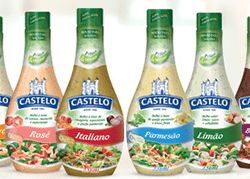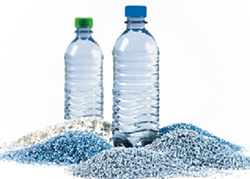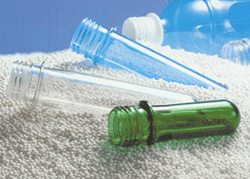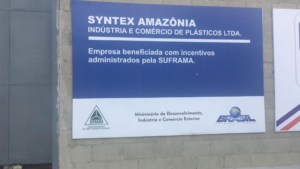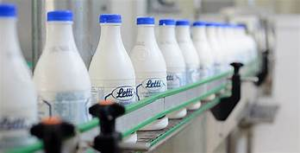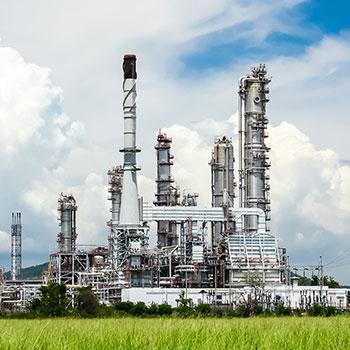
PET – Polyethylene Terephthalate
O PET – Poly (Ethylene Terephthalate) , is chemically classified as a thermoplastic polyester polymer . PET is produced industrially by direct esterification of purified terephthalic acid (PTA) and monoethylene glycol (MEG). In other words, these two elements (PTA and MEG) are mixed to create a paste that during the manufacturing process, react with each other, undergoing crystallization and forming the grain white and opaque.
A PET resin for rigid packaging is characterized by having an intrinsic viscosity (IV) greater than the PET fiber and film applications. The intrinsic viscosity, commonly expressed in dl/g, is directly proportional to molecular weight.
The PET resin is one of the newer packaging materials. Although it is widely used around the world for the manufacture of containers, especially bottles for carbonated drinks (soft drinks, carbonated waters, beers, etc.) has several other applications being found in many different market segments.
The excellent mechanical strength, gloss and transparency, makes this thermoplastic the best option for several market segments.
The lightness of PET bottles and jars allows to produce high volume capacity, with proper security maintenance in all phases (filling, packaging, distribution, end use by the consumer).
The environmental benefits provided by PET packaging are:
– Reduction of waste products and packaging – since not break even after substantial falls;
– Extreme reduction in emissions during transport;
– Water saving in filling soft drinks and other beverages.
